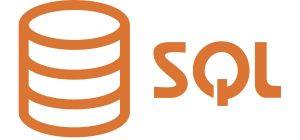June 30, 2021, by Postgraduate Placements Nottingham
How I found new clarity in my studies
This week’s blog comes from Oliver Morrison, an Engineering postgraduate, who talks about his Researcher Academy placement with Neater Solutions, a company that specialises in designing, manufacturing, and supplying specialist eating and drinking systems for people who have difficulty in feeding themselves.
When the Covid-19 pandemic began, I had to adjust to accommodate working from home. Around the world, millions of others were forced to do the same, with terms like VPN becoming common knowledge amongst even the least computer savvy. Inevitably some people found less difficulty in this transition than others. With a PhD that is entirely computer-based and requires little collaboration with others, my transition was as easy as setting up a VPN and installing some software on my home PC.
On the other hand, Neater Solutions had many difficulties with the transition to working from home. It is vital that a businesses like Neater Solutions keep track of their customers, quotations, and invoices. For many years, Neater have used a single excel document to track these three aspects of the business. However, when the pandemic hit the shortcomings of this system became apparent. The state of the spreadsheet was not synced across different computers, so if the spreadsheet was ever used by two people at the same time, there was a risk of conflicts (such as, two quotations being assigned the same quotation number). The risk of conflicts was further amplified by slow (or, in the case of the demonstrators, non-existent) internet connection.
“Upon my return to studying as a PhD student, I found that problems that seemed insurmountable before the placement were now trivial.”
During my placement, my job was to update their financial processes system to make working from home more viable and prevent conflicts and data loss. For years, Neater Solutions had used “Macros” to bake automation into a spreadsheet. This spreadsheet was filled with custom buttons and search boxes that remove any repetition from their office work. Any replacement for their spreadsheet needed to maintain this level of automation and convenience. A handful of tables in a database or google sheet would not be enough to replace this system.

I had many different ideas for how to change their system, but throughout my placement I grew to understand the need for the new system to appear the same to those using it, even if changes had been made in the code. The beginning of my placement involved setting up an SQL server (a type of database) and a simple excel spreadsheet which could download tables from that server and upload any changes made. The next phase of the placement involved replicating the functionality of the old spreadsheet.
I joined the placement to gain experience with software in a business setting. The placement exposed me to VBA and SQL, two programming languages that I had never used before, and gave me the opportunity to complete a large-scale project using a combination of the two.
While the experience and skills gained through the placement are a great addition to my CV, the greatest benefit of this placement was an unexpected one. Upon my return to studying as a PhD student, I found that problems that seemed insurmountable before the placement were now trivial. This may be, in part, a result of my improved software skills, but I expect that the true cause is something much simpler. Spending 12-weeks away from my research has allowed me to return to it with a fresh mind. This alone is reason enough to be happy that I applied, and I encourage any students reading this to try applying for a placement too. It may just be what you need to find new clarity in your studies.
If you are a postgraduate researcher interested in doing a postgraduate placement or professional internship please contact our team for more information: ppnenquiries@nottingham.ac.uk or find us on LinkedIn.
No comments yet, fill out a comment to be the first

Leave a Reply